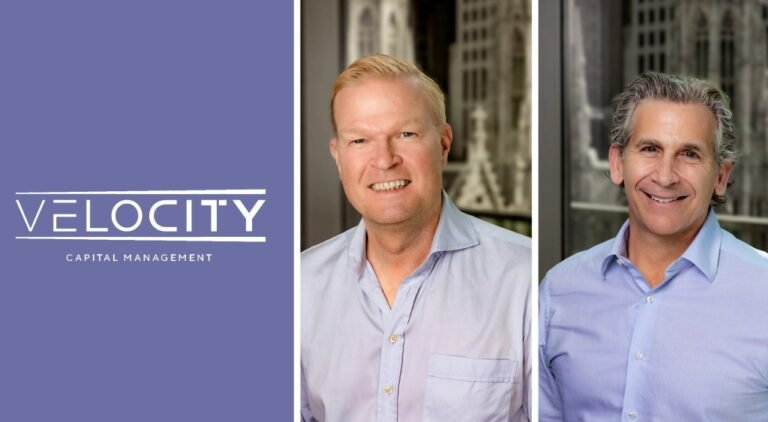In what’s been a challenging environment for private equity funds all year, sports-focused Velocity Capital Management has scored commitments from two deep-pocketed investors in recent months, signaling its long-term interest in sports properties continues to grow.
Earlier this week Velocity announced it has secured a $200 million investment from the Texas Permanent School Fund Corporation, a 170-year-old endowment for the state’s public schools that manages $56 billion in assets. Just a few months earlier, Velocity quietly took on a long-term investment commitment from Robert Budi Hartono, who, according to Forbes, is Indonesia’s wealthiest man with a fortune of nearly $28 billion.
Hartono also has an equity stake in Velocity, and Texas PSF is near to closing on its own, joining fund founder and Harris Blitzer Sports & Entertainment veteran David Abrams and UEFA and ESPN veteran Arne Rees as owners with a long-term vision for the business.
“We know exactly what our space is and now we have partners that allow us to capitalize on both the opportunity and what we think is our competitive advantage,” Abrams said on a phone call.
Velocity is one of a number of private equity funds that have formed in recent years to take advantage of the growth in the sports business as well as the move of institutional investors toward sports, a sector that was long overlooked by Wall Street’s big money. The fund launched two years ago with capital from investors including Delaware North, which owns Boston’s TD Garden and Bruins, Apollo CEO Marc Rowan, Everton winger Jack Harrison and a number of NFL players through asset manager Signify Wealth.
Despite the headline names involved, Velocity has faced the same headwinds that private equity has over the past year in raising funds. Through the first half of 2024, PE firm fundraising was on pace to drop 20% from 2023, which would make this year the worst year for PE fundraising since at least 2016, according to Institutional Investor. In Velocity’s case, the firm had assets of about $46 million entering 2024, according to a regulatory filing. To date the effort has five investments: Elevate, Parella Motorsports, Camp NYC, Videocities and X Games.
The infusion from Texas PSF, as well as an undisclosed amount from Hartono this year, obviously turbocharges the fund’s ability to add to its portfolio. The initial $200 million from Texas PSF is believed to be the largest commitment from an endowment to a sports-specific strategy ever. Investments in non-public companies aren’t disclosed by Texas PSF, but to date it has shown little interest in sports, owning just $3 million in Madison Square Garden Sports stock and about $10 million in a handful of sporting goods businesses, according to its annual report.
“When I spun out of HBSE, we had missed the ‘free money’ phase of the first part of COVID … where capital was just being given to everybody and anybody,” Abrams said. “We missed the window.”
The weakening environment for PE capital raising and the unusual nature of sports investments made for a tough sell initially. “A little bit of [the challenge] was being a first-time fund in a space where institutionally people don’t understand it,” he said.
That is, teams and the assets closely tied to their values, like intellectual property, aren’t investments often seen by the pension funds and endowments that are the typical backer of PE funds.
In the Texas PSF case, its fund manager Robert Borden saw the value in the intellectual property focus of Velocity and the economic case that the sports and entertainment sectors will continue to experience disruption. “The view was, instead of just putting money in funds, why don’t we collectively build upon the platform you guys have started and put a structure in place that allows you to be a holistic solutions provider in the [PSF] ecosystem?” Abrams explained.
Borden believed giving Velocity a large capital infusion and taking an ownership stake would allow the fund to spend more time investing and less time fundraising, Abrams explained.
The size of Texas PSF’s equity stake is still to be determined, with negotiations on the exact size and price expected to conclude in a few months. Based on the regulatory disclosure, which lists current ownership percentages by ranges, Hartono owns 10% to 25% of Velocity, Rees between 5% and 10%, and Abrams the majority.
The connection with Hartono resulted from a similar view of the value of intellectual property and a shared background in distressed securities investing: Abrams headed the distressed sales and trading desk at Credit Suisse during the financial crisis, the same time that Hartono and his brother gobbled up Indonesia’s largest bank on the cheap. Though Hartono made his fortune in a family tobacco business, his investment philosophy has broadened to a global focus on venture-style investing and IP plays through his GDP Venture arm. Hartono also owns Italian soccer team Como 1907, acquired on the verge of bankruptcy in 2019 through his Sent Entertainment, which also has television production and music publishing arms.
“We’ve talked about potentially licensing X Games into Southeast Asia,” Abrams said, and “there is potential connectivity there [with the bank] for the different things we want to do with our firm. … It made sense for them to own a stake in the business.”

